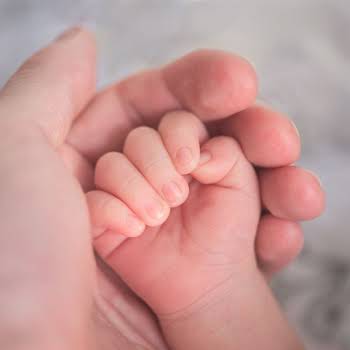By Jessie Collins
30th May 2017
30th May 2017
Mother holding daughter
There are a lot of pretty knackered mum’s out there, who are doing way more than their fair share of the parenting workload. It’s time we fought back, says Jessie Collins, for all our sakes.
Five days. Five days I have been looking at the dirty griddle pan, as it gets moved from the counter back into the sink, and out again. It is becoming a fungal experiment, and a social one too. And I am not backing down.? You see the griddle pan was used in a solo run by my other half to cook himself a nice juicy steak (which I had bought) which he also accompanied with a cheeky red while he ‘babysat’ his children, in our own house. And since I returned home that evening at the rock ‘n’ roll time of midnight to find the detritus of the day’s events – kids dinners, clothes, toys and general crap still strewn around in what has become an all too familiar greeting ?? the griddle pan has become the Rubicon, and I am refusing to cross it. It can grow a whole colony of putridity and I am not going to clean it. It may seem silly, it may seem small, but it’s important.
There has been a lot written recently about the gender workload and also what is known as the mental load – and it is, I wager, other than equal pay, the final frontier in real equality for women in western society.? A mother’s post went viral last year when she wrote a shout out to herself on the blog, Love that Max, ?I am the person,? wrote Ellen Seidman, a wife and mother of three, ?who notices we are running out of toilet paper, and I rock.? After which she went on to list every way in which she keeps the show on the road and pretty much every mother will have recognised what she was talking about. Sociologist Lisa Wade wrote about it in Time, in a piece entitled The Invisible Workload that Drags Women Down.
The Time article also cited a study from 1996 which found that women do more of the intellectual, mental, and emotional work of childcare and household maintenance. They do more of the learning and information processing (like researching paediatricians) – that’s the truly invisible work. Which is where couples come undone. It is the unseen stuff, the unrecognised slog that means lunches are planned and packed, dinners are batch cooked, outfits laid out, socialising organised.
One of the most read posts on the Guardian.com this Monday was a comic by French feminist Emma called The Gender Wars of Household Chores – in which sweetly rendered cartoons demonstrated just how easily this dynamic becomes established between couples, with the mother not only carrying out a large amount of the household chores but also the planning and organising of them. ?The problem with that;? she illustrates, ?is the planning and organising is already a full-time job. At work, once I started managing projects, I quickly stopped participating in them. I didn’t have the time.?
In most studies done around happy relationships, household chores is in the top three highest-ranking issues, with only fidelity and sex coming close. The just published New York Times’ best-selling author Jancee Dunn’s new book, How Not to Hate Your Husband After Kids, looks exactly at this. ?It’s the dirty little secret of parenting: many of us will fight after we have children. And it will sometimes get ugly.? And what are parents fighting about?? Who is doing what. Ohio State study of working couples who became first-time parents found that men did a fairly equal share of housework – until they became dads. ?By the time their baby had reached nine months,? writes Dunn, ?the women had picked up an average of thirty-seven hours of childcare and housework per week, while the men did twenty-four hours – even as both parents clocked in the same number of hours at work. When it came to childcare, moreover, dads did more of the fun stuff like reading stories, rather than decidedly less festive tasks such as diaper duty (not to mention that they did five fewer hours of housework per week after the baby arrived).?
Though she focuses a good deal on the daily chores itself, it is the highlighting of her partner’s ability to still float about in the ‘single guy bubble’ that really struck me.? The revolution in the brain of a woman when they become a mother is nothing less than Copernican, but for many men, it seems, not so much. And it is the reorganising of your neurology that allows all this unseen work to happen. That synaptic space where mothers start to preempt all needs and forecast for weather of all kinds – physical, metaphysical, emotional – that space becomes our terrain, our constant inner dialogue.
Yet maybe technology will come to our rescue, the internet of things promises to automatically order fresh milk when we run low and generally predict our every need. Maybe it will contribute to a further emancipation of women, which surely the dishwasher has definitely had a role in, and I am forever grateful to mine. But I am pretty sure someone is still going to need to know that football practice has been changed to Tuesday’s and last week’s kit is still rotting somewhere in a corner.
The renowned feminist author and thinker Fay Weldon was recently interviewed by Kirsty Wark for BBCs Newsnight programme, where she admitted that feminism hadn’t quite worked out as well as she had hoped, and not all women were doing so great on its current set up. ?You look out on the street and I see them carrying their shopping still, and struggling to get their children from the nursery and to pay their mortgage and the general anxiety with which everyone is living and I really feel they shouldn’t have to.? So do I, even it means making a stand, one griddle pan at a time.























